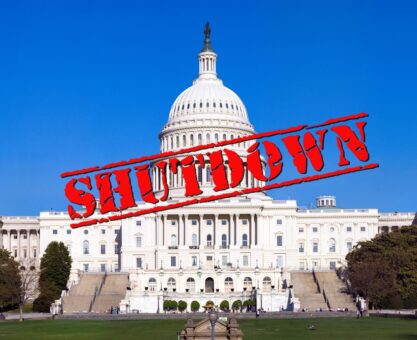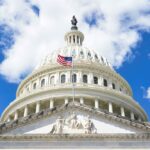Federal Court Blocks Trump’s Tariffs
On Wednesday, May 29th, a three-judge panel at the US Court of International Trade blocked President Trump’s tariffs, which he imposed via emergency economic powers. Tariffs typically need to be approved by Congress, but Trump bypassed that requirement by claiming that the country’s trade deficits were a national emergency. The Trump administration has already filed an appeal, but if the ruling stands, it could hamper Trump’s attempts to negotiate new deals with trading partners, which he maintains is vital to bring manufacturing back to the US and reduce the $1.2 trillion trade deficit.
Will Tariff Ruling End TACO Trades?
Traders have reportedly come up with the acronym TACO, which stands for “Trump Always Chickens Out,” to take advantage of the trade environment created by the president imposing tariffs on countries, and then backing off at the last moment. The “TACO” trades, first coined by the Financial Times, are one of the ways Wall Street has managed to profit from the volatility triggered by steep tariffs.
Elon Musk’s Role in the Trump Administration Ends
Elon Musk’s status as a special government employee has expired. Special government employees can’t serve a period exceeding 130 days per year. Musk wrote, “As my scheduled time as a Special Government Employee comes to an end, I would like to thank President @realDonaldTrump for the opportunity to reduce wasteful spending. The @DOGE mission will only strengthen over time as it becomes a way of life throughout the government.”
DOGE Associate Removed After Public Comments
Speaking of DOGE, Sahil Lavingia, a tech entrepreneur and founder of Gumroad, was removed from the Department of Government Efficiency after 55 days, following an interview with Fast Company published in early May 2025. In the interview, Lavingia expressed surprise that the Department of Veterans Affairs (VA), where he worked as a software engineer, was more efficient than he expected, despite its bureaucratic pace. He noted a culture shock from the government’s many meetings and slow decision-making, but concluded, “honestly, it’s kind of fine—because the government works.” He also revealed that DOGE lacked direct authority, acting more like consultants, with real decisions made by agency heads who used DOGE as a “fall guy” for unpopular choices, such as layoffs.
Be sure to visit DailyFed to keep up-to-date with all the news affecting the federal workplace and its dedicated civil servants.


























